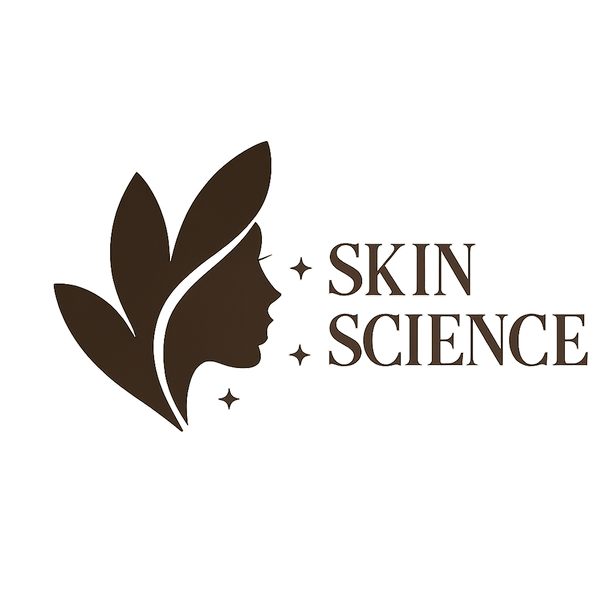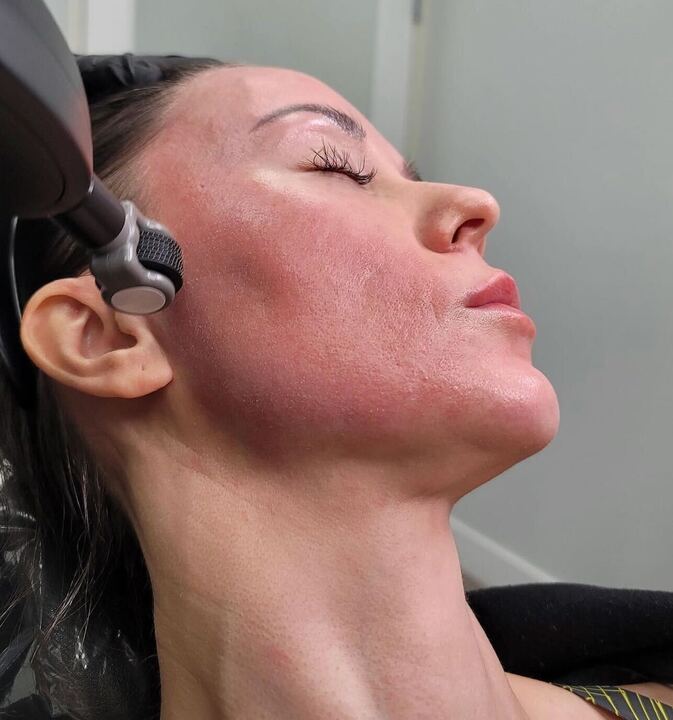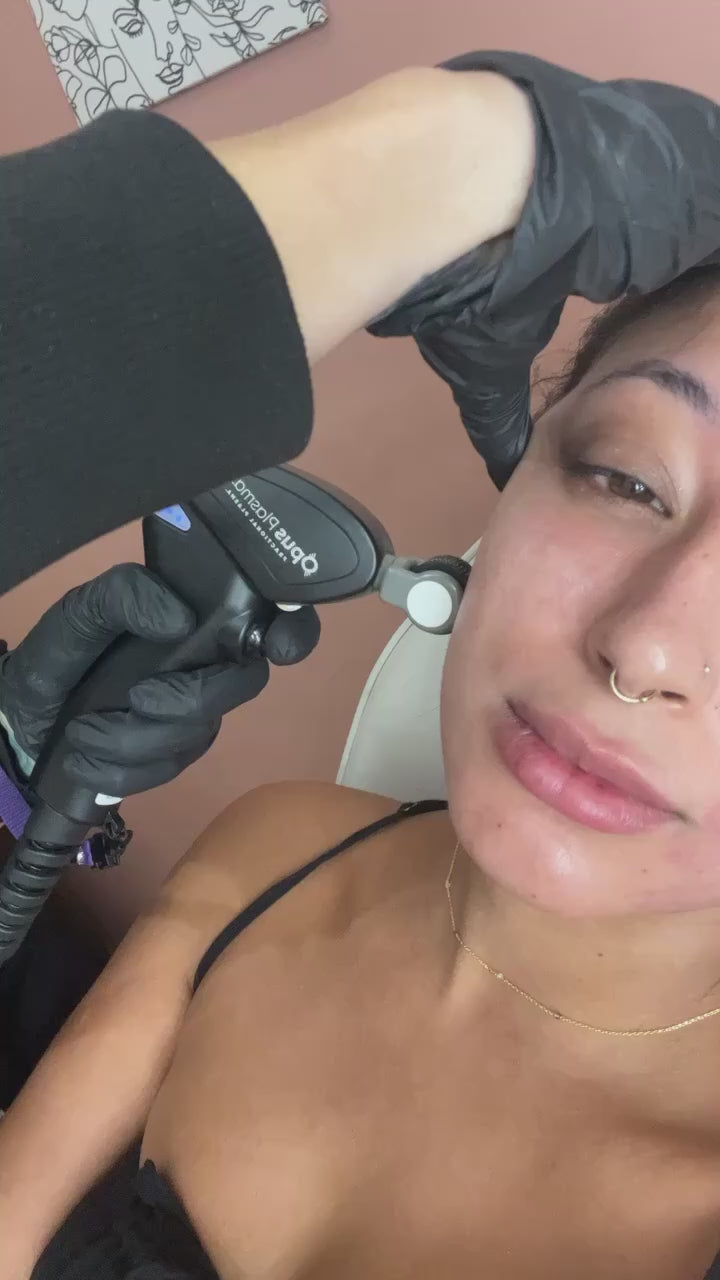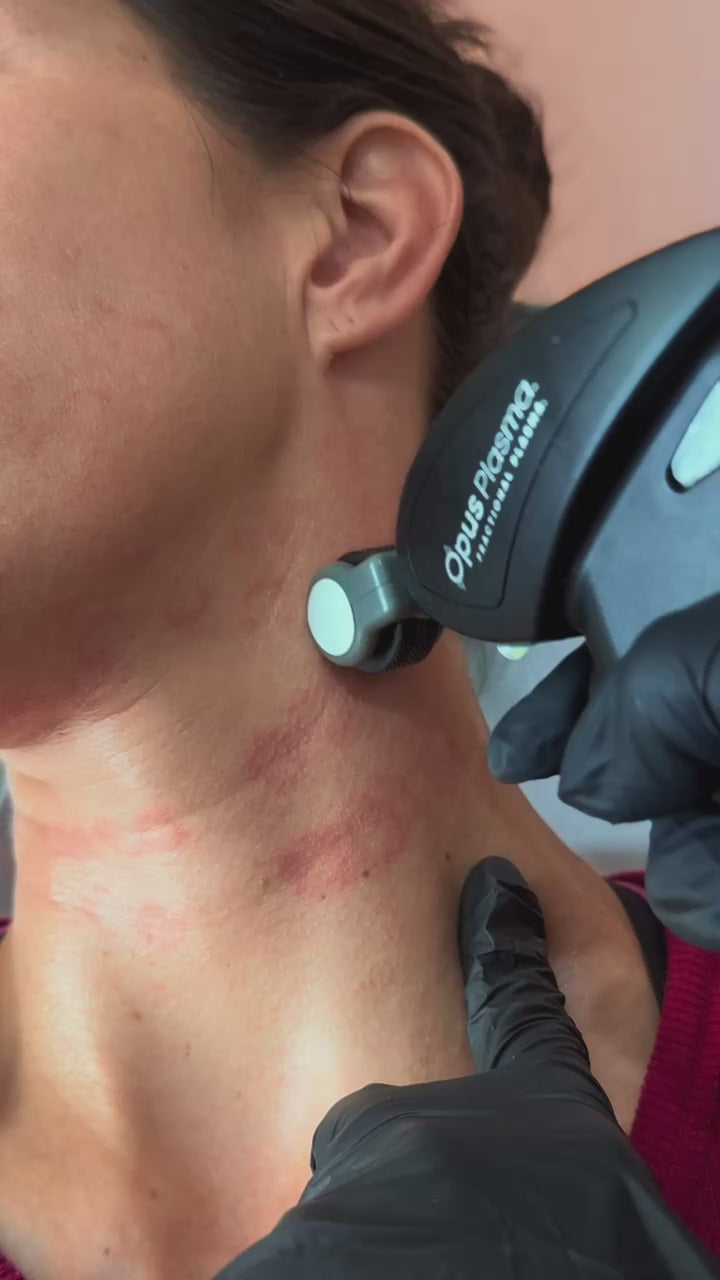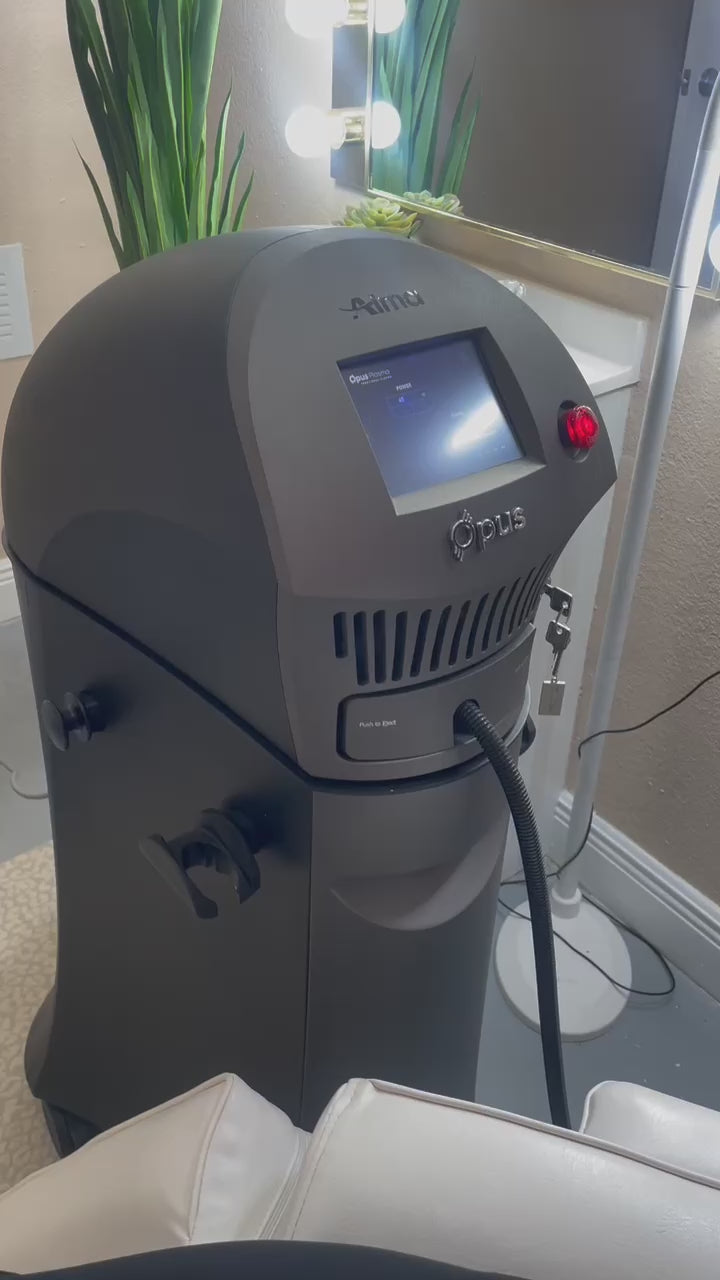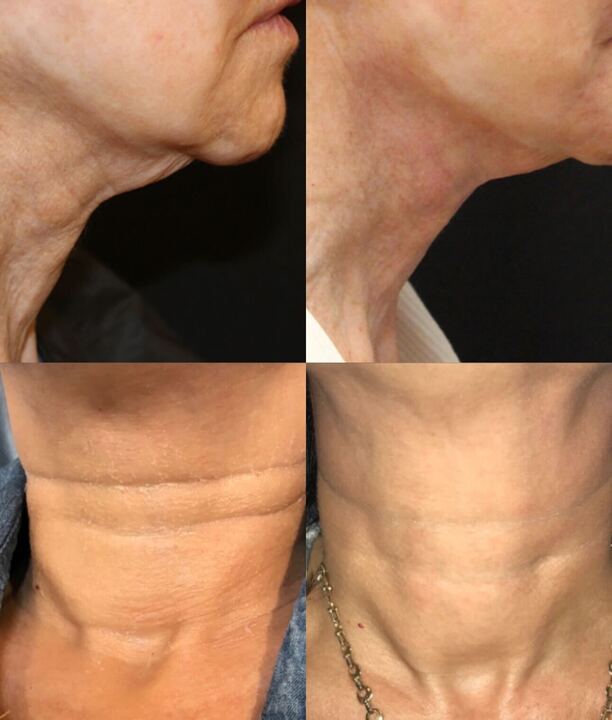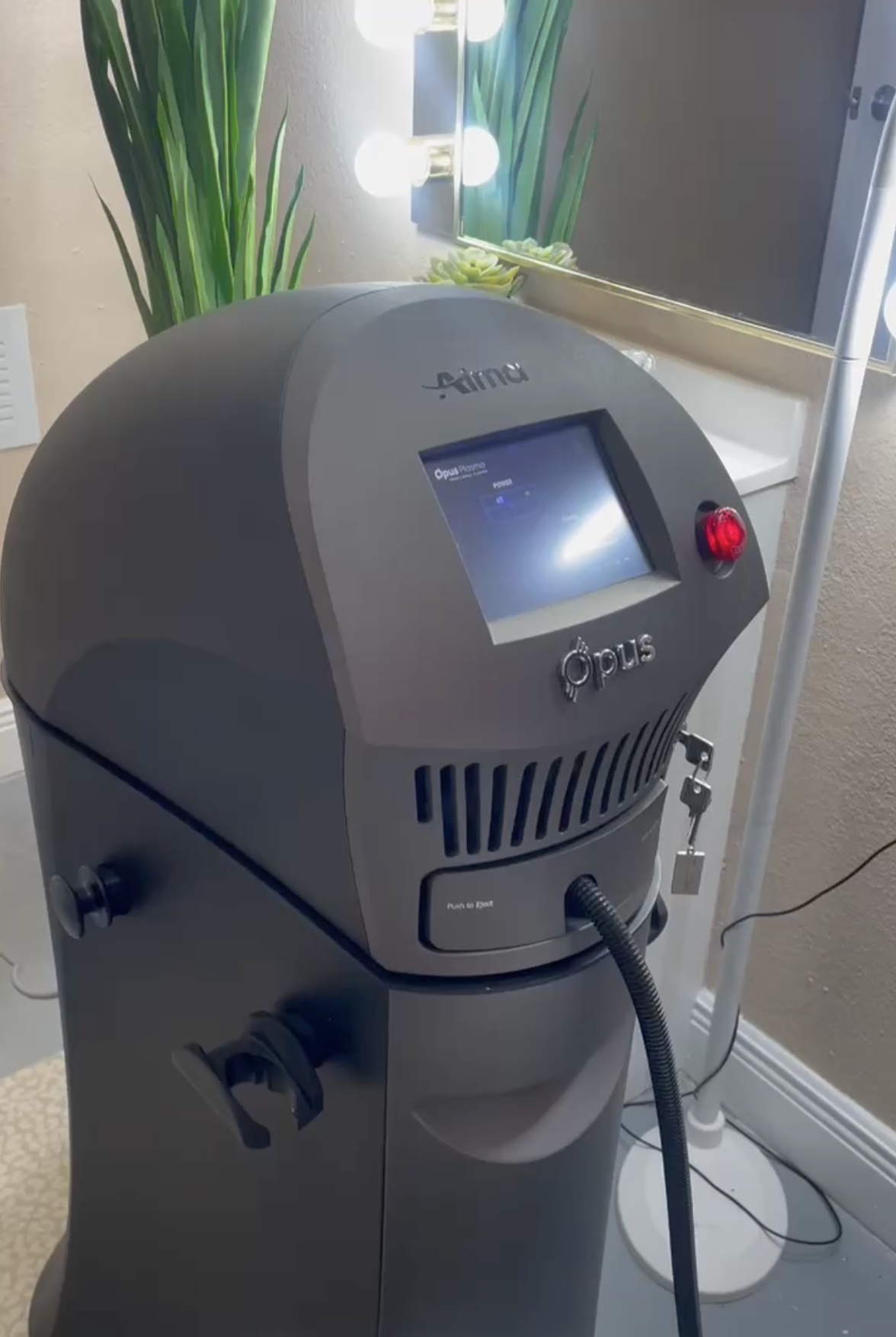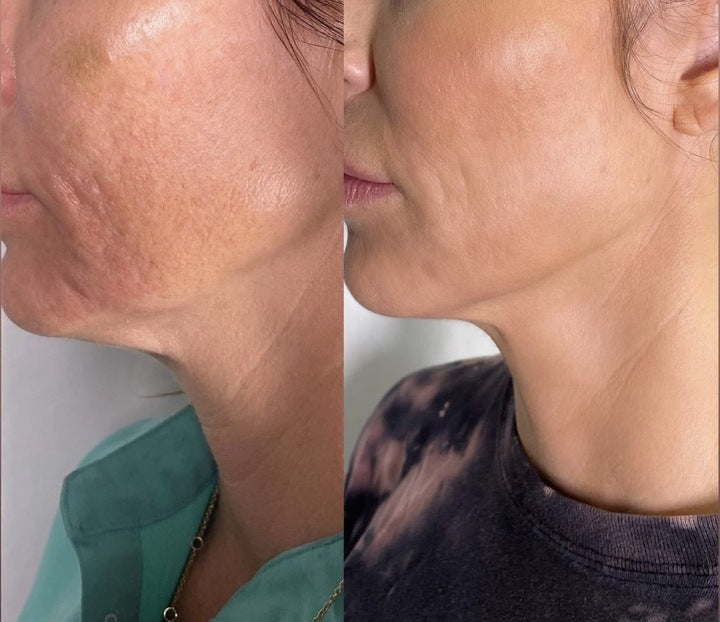Opus Plasma Skin Tightening Consultation
Opus Plasma Skin Tightening Consultation
Did you know we lose 1% of our collagen production every year after we turn 20? It's one of the biggest reasons we develop wrinkles, uneven skin texture, and other signs of aging (Scientific American). Opus Plasma reinvigorates our natural collagen production to reverse this loss and rejuvenate our skin from the inside out.
Opus Plasma uses fractionated plasma energy to deliver effects similar to a deep resurfacing treatment without the downtime. As your provider holds the device above your skin, the unipolar RF energy emitted from its metal pins reacts with the air and generates plasma. This prosma creates tiny channels for microngures in your skin to stimulate new collagen and elastin production.
Because the plasma energy is fractional, it only treats a fraction of an area at a time, leaving the surrounding skin intact for even faster healing. The result: smoother, more elastic, and younger-looking skin, without the longer recovery of other skin resurfacing treatments.
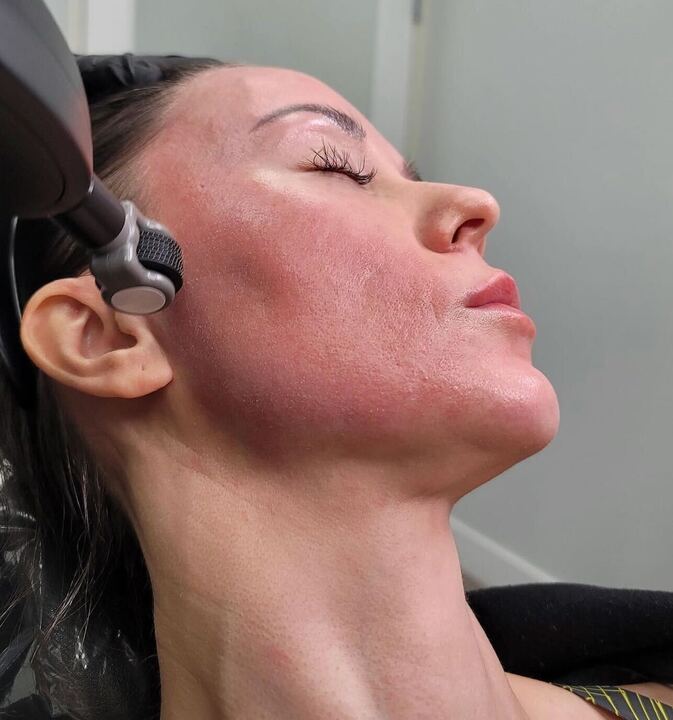
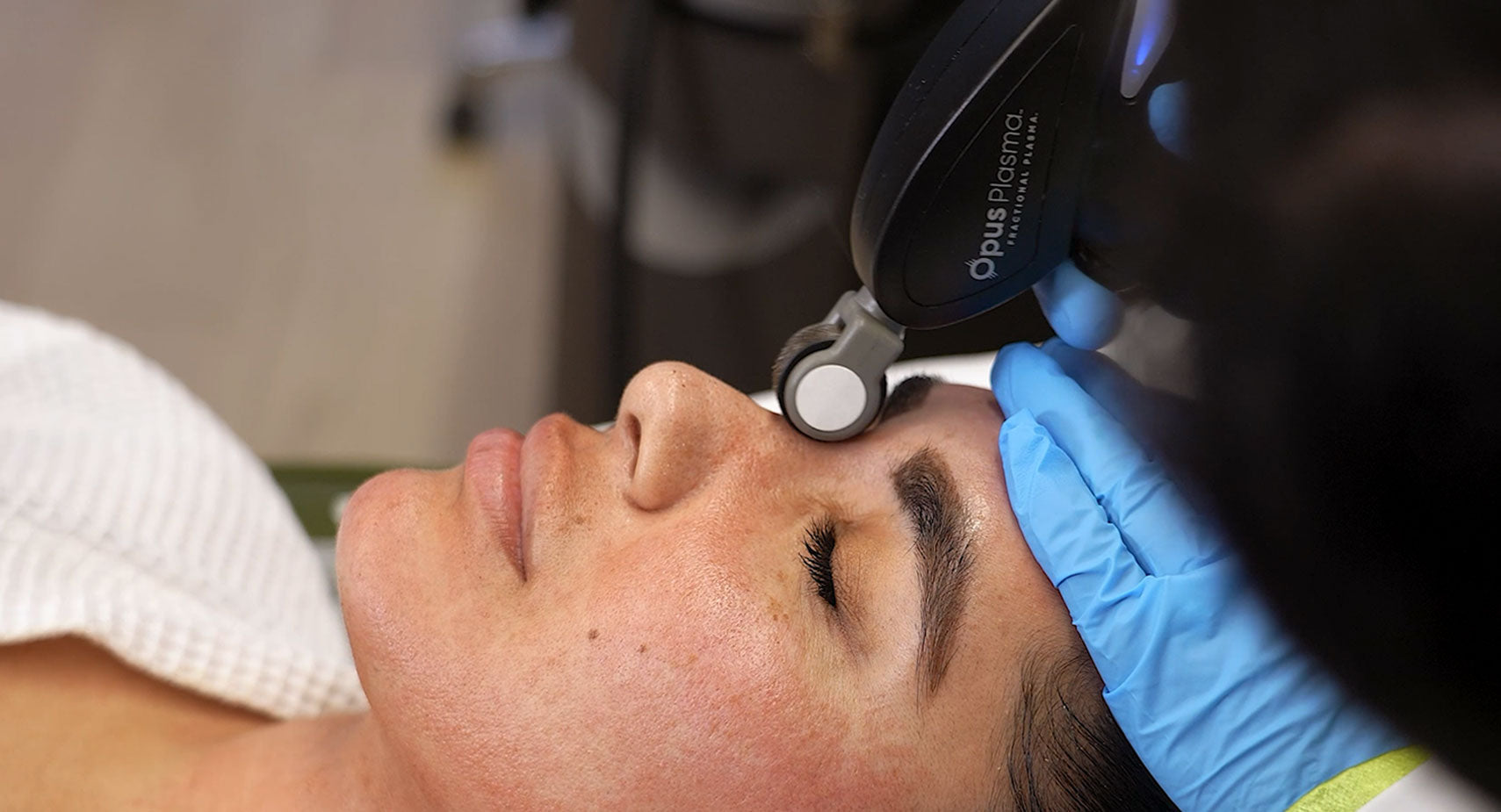
What is Opus Plasma Skin Tightening Consultation?
Featuring Alma's proprietary high frequency, unipolar technology, the Opus system's Opus Plasma® handpiece is the first-of-its-kind Fractional Plasma® technology to enter the skin resurfacing market. This novel solution addresses superficial to complex textural and skin-quality concerns that are traditionally corrected with conventional fractional resurfacing lasers or full-field ablative resurfacing lasers, but with less downtime and a higher safety profile
Features & benefits
Book now-
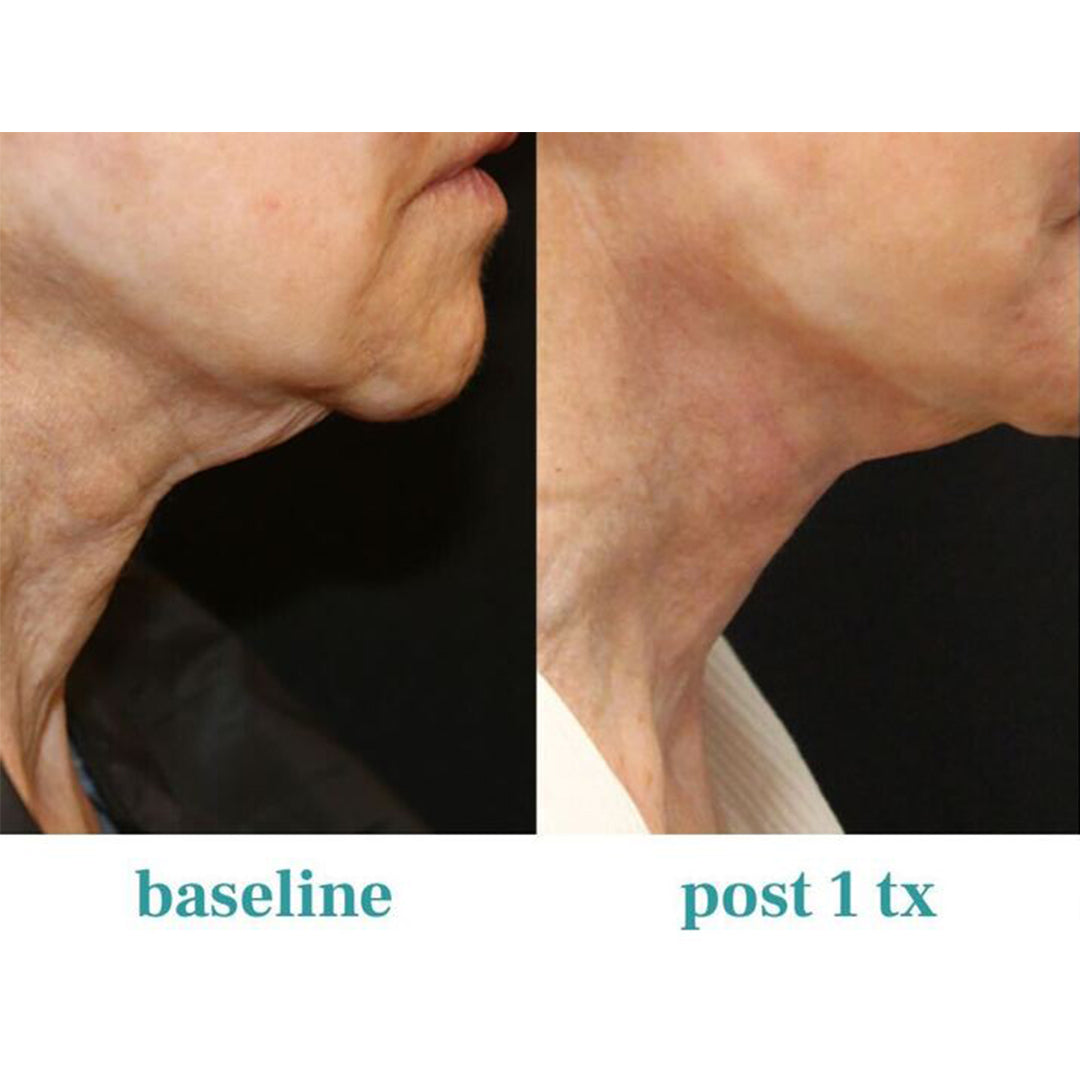
Results that Resonate with Patients Offer
Visible results after as few as one treatment, with optimal results after a completed series (2-3 treatments)
-
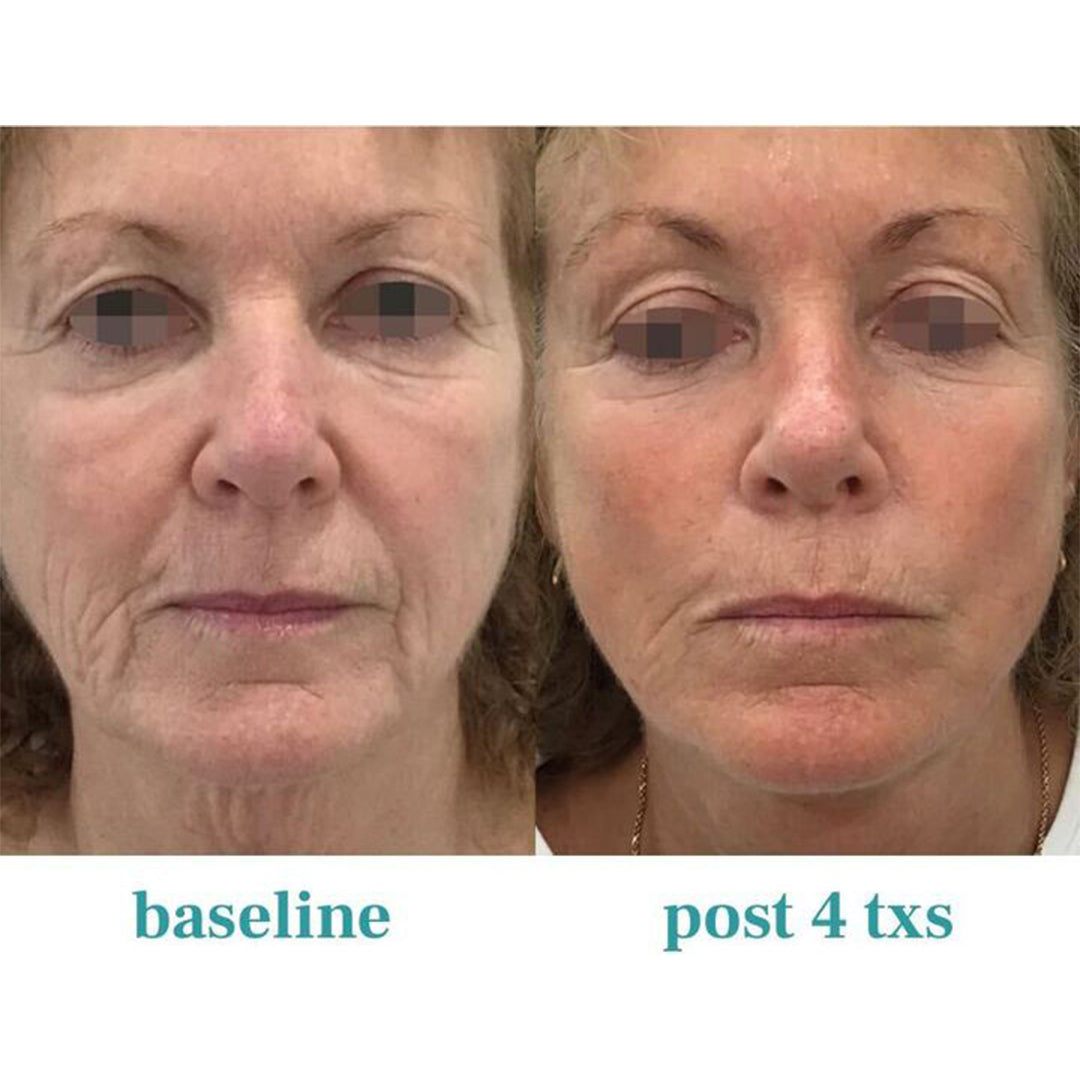
Fast & Effective Treatments
Full-face treatments can be completed in as little as 10-15 minutes
-
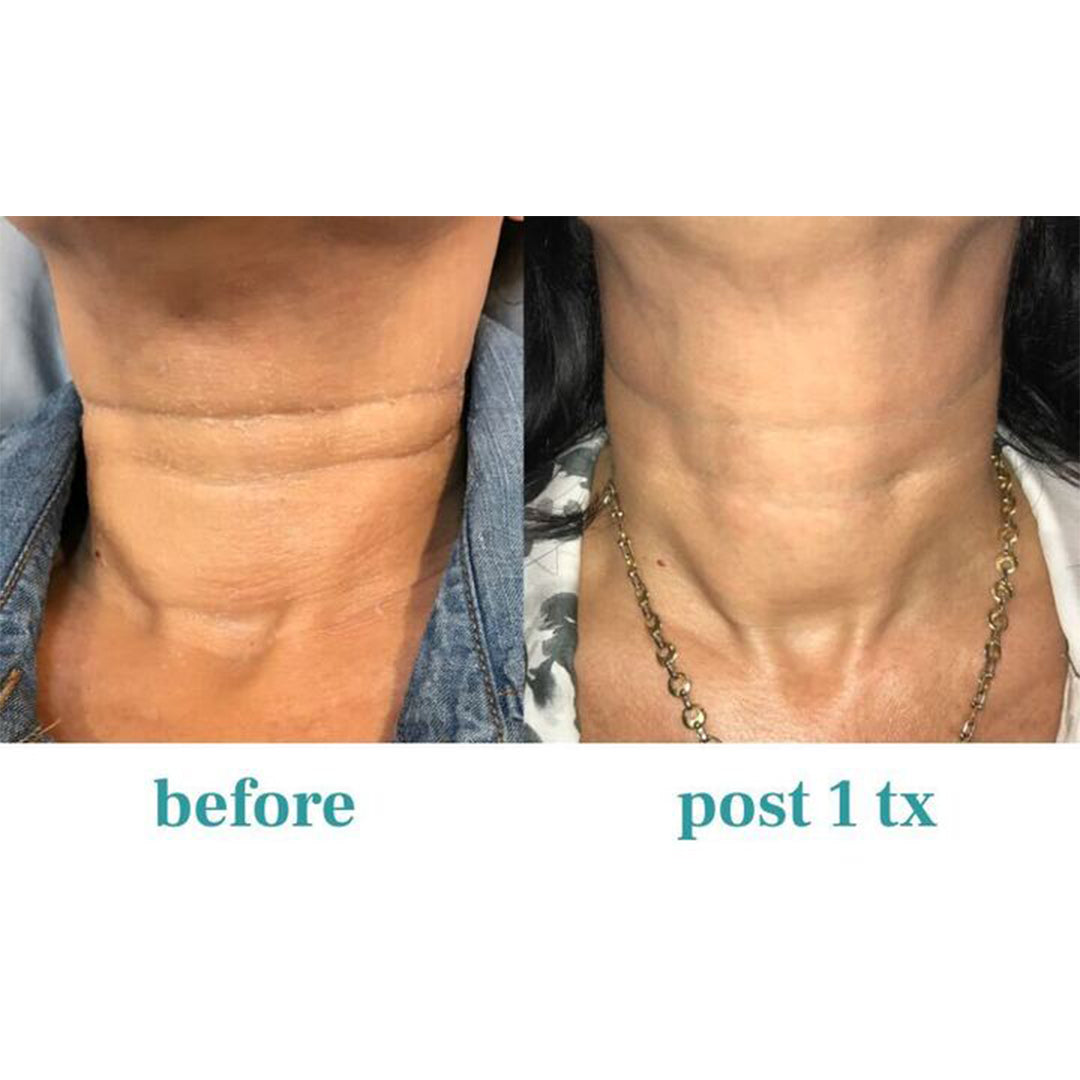
Targeted Treatments
Opus offers a selection of varying tip options designed for precision
our results speak for themselves
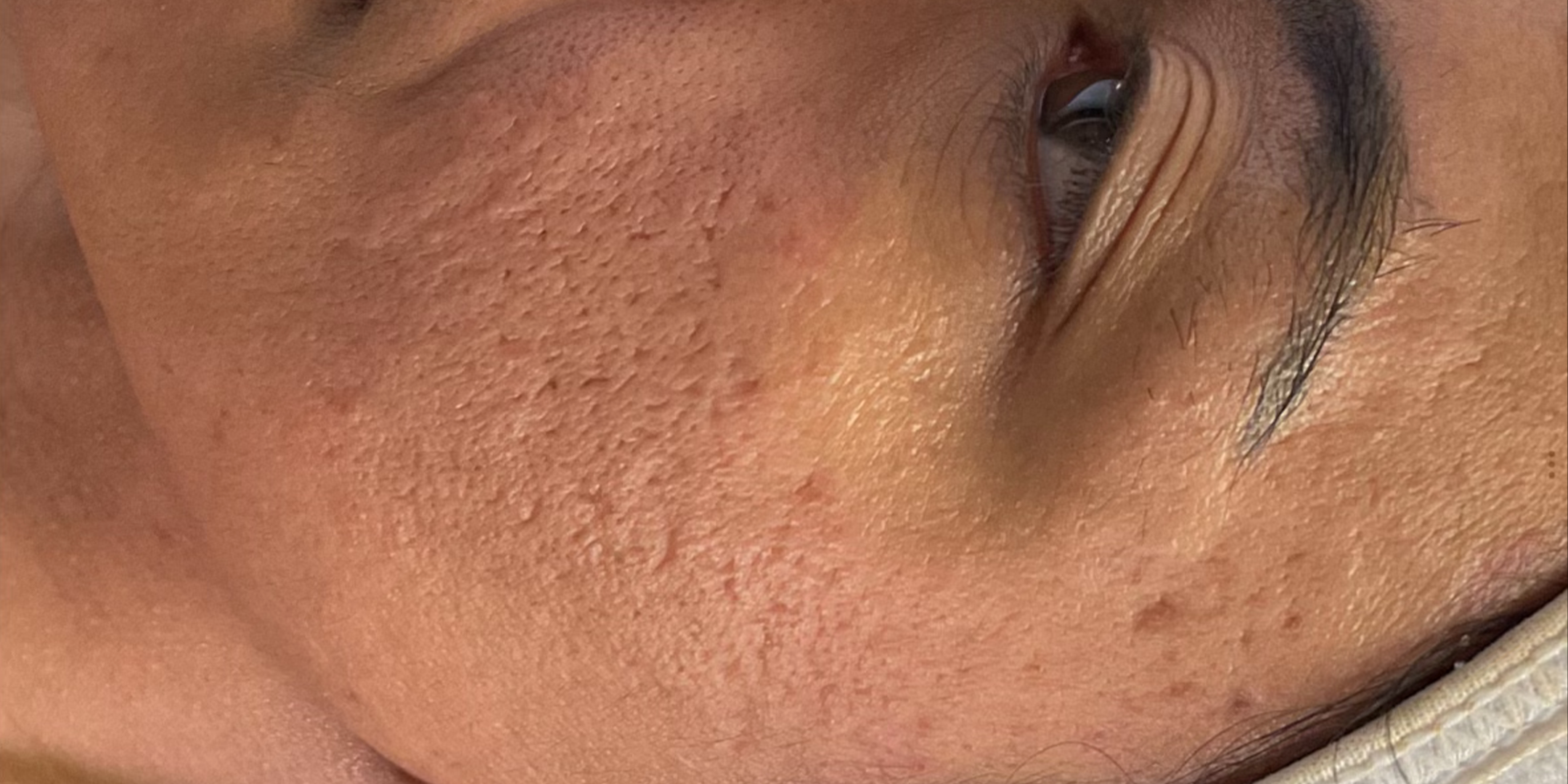 Before
Before
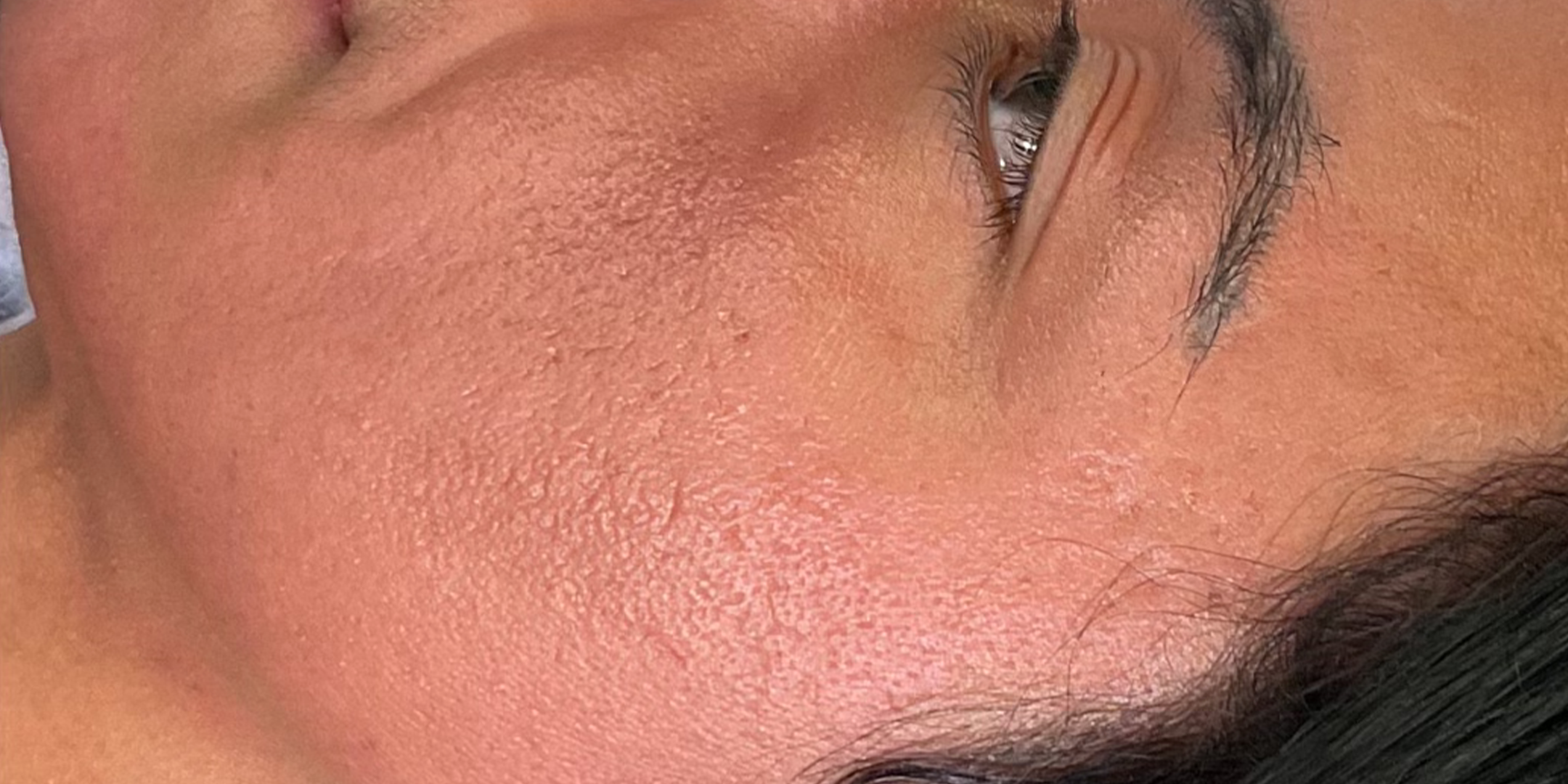 After
After
See Opus Plasma Laser In Action
Frequently asked questions
FAQ
What Does Opus Plasma Treat?
Opus Plasma is popular for everything from skin tightening to acne scar treatments, including:
- Fine lines and wrinkles
- Lax skin
- Crow's feet
- Pigmentation and dark spots
- Dull skin
- Scars from trauma or surgery
- Acne scars
- Stretch marks
- Large pores
- Uneven texture
How Is Opus Plasma Different From Other Skin Resurfacing Treatments?
What sets Opus Plasma apart from other skin resurfacing and plasma fibroblasting treatments is the combination of plasma and RF energy.
RF reaches deeper into the skin, heating the underlying layers of the dermis to boost collagen production and tighten skin. At the same time, the plasma treats more superficial layers of the skin, minimizing damage and the resulting downtime.
This combination also makes Opus Plasma highly versatile and effective for both delicate areas (such as the eyelids) and larger concerns (such as stretch marks on the abdomen).
Is Opus Plasma Safe for All Skin Types?
Yes, it is safe for all skin types, even darker skin tones. Some skin resurfacing treatments carry a risk of hypo or hyperpigmentation for deeper skin tones, but Opus Plasma has been cleared for Fitzpatrick types I through V.
Are Opus Plasma Treatments Painful?
Treatments aren't typically painful with proper numbing.
Before the treatment, your provider will apply a topical numbing cream to make you as comfortable as possible and allow it to take effect for 20 to 30 minutes before starting your session. With this numbing, most people find they only feel mild pressure and some warmth during the treatment. It can feel slightly uncomfortable, but it is definitely tolerable.
Treatments are also quick, taking only 15 to 30 minutes, depending on the size of the treated area.
What Is Opus Plasma Recovery Like?
You can expect some redness and swelling for 2 to 3 days appearing as a "sunburnt look", after which time most people can return to their normal activities and cover any residual redness with mineral makeup, Your skin will be especially sensitive to UV rays, so you will need to avoid direct sun exposure and make sure to wear a broad-spectrum sunscreen for the next 2 weeks. Our aestheticians will discuss your aftercare at your initial consultation!
How Many Opus Plasma Treatments Will I Need?
Many people start to see improvements in their skin after their first treatment, especially as collagen production continues over the following weeks. However, you will most likely need about 3 to 4 treatments spaced a month apart to see your best results.
What are the benefits of Opus Plasma™ treatment?
The benefits of an Opus Plasma™ treatment include:
Reduced appearance of fine lines, wrinkles, and loose and saggy skin
Overall skin rejuvenation
Minimized acne scars, surgical scars, and stretch marks
Popular treatment areas include the face, neck, abdomen, and arms.
How quickly will I notice results?
Most patients see results after a single treatment, we recommend 2 to 3 treatment sessions for optimal results.
How long does an Opus Plasma™ treatment last?
Although Opus Plasma™ does not put a halt to the natural process of aging, you can maintain your results with maintenance treatments every six to twelve months.
Is there downtime with Opus Plasma™ treatment?
Because of Opus Plasma’s™ state-of-the-art technology and approach, patients experience drastically less downtime versus other laser treatments. You can expect about one to two days of redness and swelling, but you can generally return to your regular schedule immediately after treatment.
What can I expect after treatment?
Following the procedure, you will experience redness lasting ~4 hours. Redness or swelling lasting 1-2 days is not unusual. Symptoms will typically resemble a mild sunburn
A rough sandpaper-like feeling of the treated skin for 2-5 days
A small number of patients may experience scabbing in intensely treated areas
There is generally no downtime. You may resume normal activities following the procedure (avoid sun exposure on the day of the procedure).
Treatment around the eyes may result in eyelid swelling – use ice packs, sleep upright, avoid salty foods
What should I avoid after treatment?
Hot showers 24-hours post-procedure
Excess sweating 24-hours post-procedure (may cause a burning sensation)
Sun exposure after and in between treatments.
Do not use vaseline/aquaphor to treatment areas
